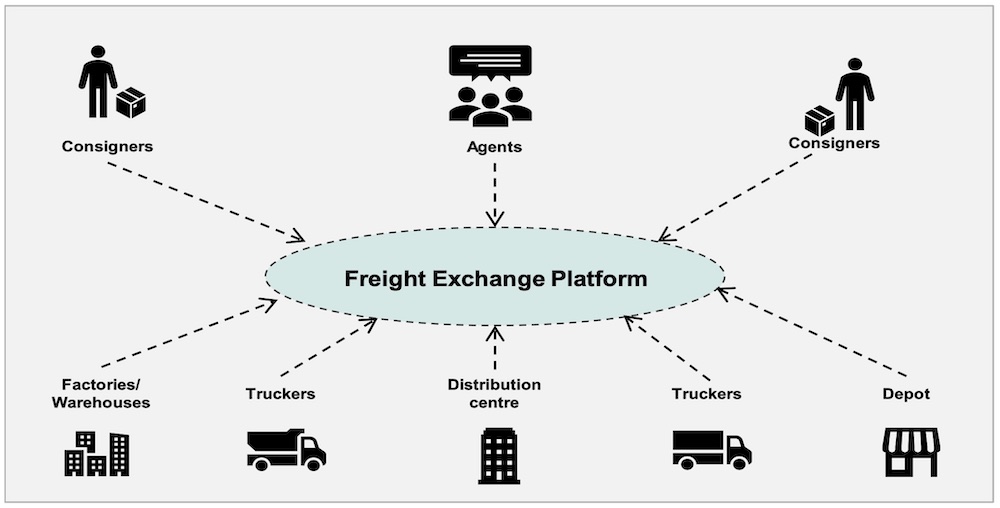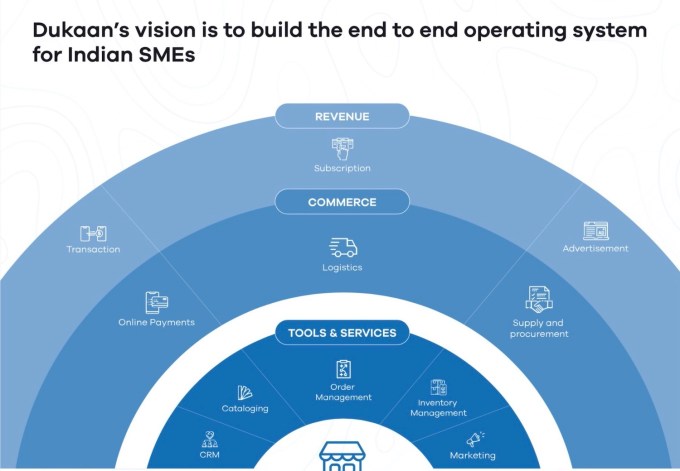News: The Station: Lyft, Uber take action in Texas, Van Moof charges up with capital, an eVTOL SPAC deal gets knocked
The Station is a weekly newsletter dedicated to all things transportation. Sign up here — just click The Station — to receive it every weekend in your inbox. Hello readers: Welcome to The Station, your central hub for all past, present and future means of moving people and packages from Point A to Point B. Before
The Station is a weekly newsletter dedicated to all things transportation. Sign up here — just click The Station — to receive it every weekend in your inbox.
Hello readers: Welcome to The Station, your central hub for all past, present and future means of moving people and packages from Point A to Point B.
Before you jump into the transportation news of the week, a bit of TechCrunch company news!
Private equity firm Apollo Global Management completed its acquisition of Yahoo (formerly known as Verizon Media Group, itself formerly known as Oath) from Verizon. The deal is worth $5 billion, with $4.25 billion in cash, plus preferred interests of $750 million. Verizon will be retaining 10% of the newly rebranded company. The group, aside from Yahoo properties like Mail, Sports and Finance, includes TechCrunch, AOL, Engadget and interactive media brand, RYOT. All told, the umbrella brand encompasses around 900 million monthly active users globally and is currently the third-largest internet property, per Apollo’s figures.
Looking ahead: be on the lookout for automotive and tech news coming out of IAA Mobility in Munich this week. A bit of news that broke Sunday included Volkswagen Commercial Vehicles and autonomous vehicle technology company Argo AI unveiling the first version of the ID Buzz AD. Mercedes also had a busy day in the world of EVs.
As always, you can email me at kirsten.korosec@techcrunch.com to share thoughts, criticisms, opinions or tips. You also can send a direct message to me at Twitter — @kirstenkorosec.
Micromobbin’
You might have noticed that the micromobbin’ section wasn’t featured in last week’s newsletter. Well, Rebecca Bellan is making up for that with an extra long write up this week. Take it away Rebecca.
Since Auckland, New Zealand is back in a massive lockdown, the highlight of my week has been getting to write about and, and thus relive, my test of the electric utility bike built by Kiwi company Ubco. If any other electric micro-vehicle companies want to send me a tester and brighten my day, I’m always open.
Tl;dr: the Ubco bike looks like a dirt bike and rides like a moped and absolutely shreds. Pros: Smooth ride, good battery life and can carry a lot of weight and accessories. Cons: A bit on the pricey side, regenerative brakes think they know what’s best for me when I’m speeding downhill and a touchy keyfob.
Last-mile deliveries
If you’re one of those smart lazy people who orders meal kits through the likes of HelloFresh or Blue Apron, you’ve probably interacted with AxleHire without knowing it. That’s about to change.
The last-mile logistics provider announced this week that it would be expanding two pilot programs to bring cool tech to the delivery scene. Over the past year or so, the company’s been partnering with URB-E and using its network of collapsible containers strapped onto e-bikes to make deliveries in NYC, as well as Tortoise’s remotely controlled adorable delivery bots in LA. Now, those programs, which helped AxleHire reduce emissions and beat traffic, are going national.
An Indian empire arises
Ola Electric, the electric scooter manufacturing arm of ride-hailing giant Ola, is in talks to raise between $250 million to $500 million in new financing as it looks to scale its business in the South Asian market.
Falcon Edge Capital, which is potentially leading the round, values the company between $2.75 billion and $3.5 billion, which is up $1 billion from its previous 2019 raise. Side note: Ola, the initial parent firm of Ola Electric, is currently looking to file for an initial public offering.
Big box bike sales
Best Buy has a fresh lineup of electric vehicles that are available online now and coming to select stores in October, including many we’ve written about here, like the Unagi scooter and the new Bird bike. Other top names include Segway-Ninebot, SUPER73 and SWFT.
Speaking of new swag, VAAST Bikes has just revealed the E/1, the latest in the company’s sustainable bike range. The urban e-bike boasts a top notch suspension system that separates pedaling from suspension movement for a more comfortable ride, no matter how much cargo you’re packing. A step-through frame provides a low center of gravity, making it an easy enough bike to mount for riders of all ages and shapes and sizes. The E/1 will be available to purchase in the U.S., U.K. and European markets starting October, and it costs anywhere from $7,499 to $9,999.
Foldable e-bike maker Fiido has raised over $1 million on Indiegogo to fund the production and delivery of its new Fiido X. It’s got a sweet-looking minimalist design with a light and sturdy body, as well as improved pedal-assist and cycling control. Fiido says this bike is the world’s first folding e-bike with a built-in seat pole that transmits battery power. It’s got a 417.6Wh ternary lithium battery, which means when it’s in “moped mode” the range is over 130 kilometers, or around 81 miles. Not bad at all. Price is anywhere from $1,098 to $1,601 at the moment.
Swedish electric motorbike manufacturer Cake also recently released a new super lightweight e-moped that’s built for city utility riding, but can probably handle some off-road fun. The Makka weighs about 132 pounds and comes in two forms: The Makka Range, at $3,500, which is available only in Europe, has a lower maximum speed of 15 miles per hour and a range of up to 35 miles. The Makka Flex, which is available in Europe and the U.S., costs $3,800 and can hit top speeds of 28 miles per hour. The range of this vehicle is slightly less, at 30 miles.
National Drive Electric Week (sans cars)
This is the first National Drive Electric Week that has nothing to do with cars! Fabulous. At this free, two-part expert webinar, a range of experts will talk about how to get moving on two e-wheels and discuss whether or not cars are overrated (they are). Find out how policymakers and advocates are thinking about how we can get electric micromobility and public transit to dominate the roads, rather than cars, even electric ones. The event takes place Saturday, September 25 from 11am to 1pm PST on Zoom. You can register here.
Van Moof’s big raise
VanMoof, the Amsterdam-based startup, raised a $128 million Series C funding round, fund it plans to use in its bid to become the world’s leading e-bike brand. It’s tactic, scale faster than the rest.
Asia-based private equity firm Hillhouse Investment led the round, with Gillian Tans, the former CEO of Booking.com, also participating. Some existing investors also put some more money on the table, such as Norwest Venture Partners, Felix Capital, Balderton Capital and TriplePoint Capital.
The Series C represents a big jump compared to the company’s Series B. Last year, VanMoof raised a $40 million Series B. The startup has raised $182 million in total.
— Rebecca Bellan
Deal of the week
This week, I want to focus on one deal that appears to be at risk.
Institutional Shareholder Services Inc., an influential shareholder adviser, issued a report this week recommending that investors in Ken Moelis’s Atlas Crest Investment Corp. should vote against a merger with Archer Aviation. The adviser said it would be better for investors if they redeemed their holdings in the blank-check company for cash.
If investors take that advice, it could derail the proposed merger between Atlas Crest and Archer, a startup that is developing vertical take-off and landing electric aircraft. ISS argues that Archer’s legal battle with Wisk Aero puts the company at risk. The firm also points to the falling valuation of the combined company.
As Bloomberg noted this week, ISS has targeted other SPAC deals involving eVTOL companies. ISS opposed the merger between Reinvent Technology Partners and Joby Aviation. Shareholders ignored ISS and vote to approve the merger. ISS also advised against investing in Qell Acquisition Corp.’s merger with Lililum GmbH. That deal is still pending.
While ISS seems to have a general distaste for eVTOL SPACs, the Archer deal is particularly sticky due to its current legal wrangling with Wisk Aero. For those who haven’t been following: Wisk Aero, the air mobility company born out of a joint venture between Kitty Hawk and Boeing, filed a lawsuit in April against Archer Aviation alleging patent infringement and trade secret misappropriation.
Archer didn’t scuttle into a corner. The company countersued in a lawsuit seeking $1 billion in damages from Wisk Aero.
Investors won’t be able to take the wait-and-see approach. The vote to approve the SPAC merger will be held long before this legal fight is resolved.
Other deals that got my attention this week …
Carsome Group, the Malaysian-based online marketplace for buying and selling used cars, raised $170 million from investors, including from semiconductor maker MediaTek, investment company Catcha Group and Malaysian government fund Penjana Kapital, Forbes reported. The company’s post-funding valuation is $1.3 billion.
Cox Automotive acquired Oklahoma City-based Spiers New Technologies (SNT), a business that provides repair, remanufacturing, refurbishing and repurposing services for EV battery packs. The two companies did not disclose the terms of the deal.
Foretellix, a company that has developed a platform to verify and validate automated driving systems, raised $32 million in a Series B funding round led by MoreTech Ventures, with participation from several strategic investors, including Volvo Group, Nationwide, NI and Japan-Israel Ventures. Previous investors 83North Ventures, Jump Capital, OurCrowd and NextGear also participated. The company, founded in 2018, has raised more than $50 million to date.
Gatik AI, an autonomous vehicle startup focused on middle-mile logistics, announced it’s expanding into Texas — its fourth market — with a fresh bundle of capital. Gatik said it has raised $85 million in a Series B round led by new investor Koch Disruptive Technologies, the venture arm of Koch Industries. Existing investors Innovation Endeavours, Wittington Ventures, FM Capital, Dynamo Ventures, Trucks VC, Intact Ventures and others also participated. Gatik has raised $114.5 million to date.
HAAS Alert, a SaaS company that provides real-time automotive collision prevention for public safety and roadway fleets, raised $5 million in a seed funding round led by R^2 and Blu Ventures and joined by TechNexus, Stacked Capital, Urban Us, Techstars, Ride Ventures and Gramercy Fund. The company says it will use the funds to scale sales and outreach efforts and prioritize R&D with vehicle-to-vehicle and vehicle-to-infrastructure (V2X) technology partnerships.
Ideanomics, a fintech and electric mobility firm based in New York, acquired commercial electric vehicle manufacturer Via Motors in an all-stock deal valued at $450 million.
Iconiq Motors, a Chinese electric vehicle firm, is considering going public in the U.S. through a merger with a blank-check company, Bloomberg reported. The startup is working with an adviser on a potential deal that could value the combined company at about $4 billion, according to one source cited by the media outlet.
Kevala, the startup that collects and analyzes energy grid infrastructure data for utility companies, renewable energy providers, EV charging companies, regulators and other energy industry stakeholders, raised $21 million in a Series A round. The company says it will use the funds to grow its team from 60 employees to around 100 by the end of 2021 and increase the deployment of its grid analytics tools.
Sunday, an insurtech startup based in Bangkok, raised a $45 million in a Series B round that included investment from Tencent, SCB 10X, Vertex Growth, Vertex Ventures Southeast Asia & India, Quona Capital, Aflac Ventures and Z Venture Capital. The company says the round was oversubscribed, and that it doubled its revenue growth in 2020.
Yandex, the Russian internet giant that also operates a ride-haling company, acquired Uber’s stake in its Self-Driving Group (SDG), as well as Uber’s indirect interest in Yandex.Eats, Yandex.Lavka and Yandex.Delivery. The total cost of the deal came to $1 billion, giving the Russian company 100% ownership over all four businesses.
Zeekr, the electric vehicle brand by Geely, raised $500 million in its first external funding from a list of investors, including Intel Capital, battery maker CATL and online entertainment firm Bilibili. The round puts Zeekr’s valuation at aboout $9 billion, Reuters reported.
Policy corner
Welcome back to policy corner! Let’s talk safety. Traffic deaths spiked in the first quarter of this year, according to preliminary data from the National Highway Traffic and Safety Administration. The agency estimated that there was a 10 percent increase in fatalities from previous projections, finding that 8,730 people died in motor traffic accidents, up from the 7,900 projected. Oddly, deaths spiked even though there was an overall decrease in the number of people on the road.
“We must address the tragic loss of life we saw on the roads in 2020 by taking a transformational and collaborative approach to safety,” NHTSA’s acting administrator, Steven Cliff, said in a statement. “Everyone — including those who design, operate, build and use the road system — shares responsibility for road safety.”
NHTSA is arguably starting to come up against some of the greatest challenges in the agency’s history, as technological development has brought about a greater degree of driving autonomy and driver assistance systems.
The forthcoming investigation into Tesla’s Autopilot could be a watershed moment for ADAS safety standards. If you aren’t caught up: NHTSA opened an investigation into 11 instances of a Tesla crashing into a parked emergency vehicle, and just added another crash to its investigation earlier this week. In an 11-page letter to the electric vehicle maker, NHTSA gave the company until October 22 to provide extensive data on any hardware and software related to Tesla’s Level 2 capabilities (including Autopilot).
The probe comes as more and more groups — including the Insurance Institute for Highway Safety and Advocates for Highway & Auto Safety, as well as the National Traffic Safety Board — call on NHTSA to exercise greater authority over regulating ADAS systems. We’ll certainly be keeping an eye on this investigation as it unfolds in the coming months.
— Aria Alamalhodaei
Notable news and other tidbits
Autonomous vehicles
Motional revealed the first images of its planned robotaxi, a Hyundai all-electric Ioniq 5 SUV that will be the centerpiece of a driverless ride-hailing service the company wants customers to be able to access starting in 2023 through the Lyft app.
The purpose-built vehicle, which will be assembled by Hyundai, is integrated with Motional’s autonomous vehicle technology, including a suite of more than 30 sensors including lidar, radar and cameras that can be seen throughout the interior and exterior. That sensing system provides 360 degrees of vision, and the ability to see up to 300 meters away, according to Motional.
Electric vehicles
ElectraMeccanica Vehicles Corp. unveiled a “cargo” version of its flagship three-wheeled, single-occupant, all-electric SOLO at the Advanced Clean Transportation Expo in California.
Power Global, a two-year-old startup, wants to disrupt the auto rickshaw market by offering a retrofit kit for diesel-powered vehicles and swappable battery pack to transition the more common lead-acid batteries to lithium-ion.
Rivian announced that the first edition version of its all-electric R1T pickup truck has an official EPA range of 314 miles, while its R1T SUV comes in a skosh higher at 316 miles.
Siemens said it will expand its U.S. manufacturing operations to support electric vehicle infrastructure. Specifically, the company plans to open a third facility to its VersiCharge Level 2 AC series product line of commercial and residential EV chargers. The additional facility, which is expected to come online in early 2022, will allow Siemens to manufacture more than 1 million electric vehicle chargers for the United States over the next four years.
TechCrunch editor Mike Butcher digs into YASA, the British electric motor startup that Mercedes-Benz acquired back in July The company, founded in 2009 after spinning out of Oxford University, developed an ‘axial-flux’ motor. YASA will now develop ultra-high-performance electric motors for Mercedes-Benz’s AMG.EA electric-only platform.
Wallbox, an electric vehicle charging company, has selected Arlington, Texas as the location of its first U.S. manufacturing facility. Production at the 130,000-square-foot plant is expected to start as early as June 2022. Production lines for its AC chargers lines, DC bidirectional charger, and DC fast charger for public use, are anticipated to follow in the first half of 2023. Wallbox said it expects to manufacture a total of 290,000 units annually in this facility by 2027 and reach its full capacity of 500,000 units by 2030.
Gig economy
DoorDash workers in California protested outside of the home of DoorDash CEO Tony Xu in response to a recent California superior court judge ruling calling 2020’s Proposition 22 unconstitutional. Prop 22, which was passed last November in California, would allow app-based companies like DoorDash, Uber and Lyft to continue classifying workers as independent contractors rather than employees.
The group of about 50 DoorDash workers who are affiliated with advocacy groups We Drive Progress and Gig Workers Rising demanded that DoorDash provide transparency for tips and 120% of minimum wage or around $17 per hour, stop unfair deactivations and provide free personal protective equipment, as well as adequate pay for car and equipment sanitizing.
Massachusetts Attorney General Maura Healey gave a coalition of app-based service providers that includes Uber and Lyft the go-ahead to start collecting signatures needed to put a proposed ballot measure before voters that would define drivers as independent contractors rather than employees. Backers of the initiative, which is essentially a MA version of Proposition 22, would need to gather tens of thousands of signatures for the measure to make it to the November 2022 ballot.
Uber and Lyft separately announced plans to cover the legal fees of drivers using their ride-hailing apps who are sued under Texas’s new abortion law.
The new law bans abortions once a fetal heartbeat is detected, which is typically around six weeks, and gives any individual the right to sue anyone who aids or abets an abortion. That means ride-hailing app drivers, who might transport a woman to a clinic, can be sued.
Uber CEO Dara Khoswarshari and Lyft CEO Logan Green both took to Twitter express their opposition to the new law and announce their support to drivers.
“TX SB8 threatens to punish drivers for getting people where they need to go– especially women exercising their right to choose,” Green wrote on Twitter. “@Lyft has created a Driver Legal Defense Fund to cover 100% of legal fees for drivers sued under SB8 while driving on our platform.
Khosrowshahi retweeted Green’s tweet and made the same commitment. “Right on @logangreen – drivers shouldn’t be put at risk for getting people where they want to go. Team @Uber is in too and will cover legal fees in the same way. Thanks for the push.”
Green and Khosrowshahi are among the few CEOs (a list that includes Austin-based Bumble and Dallas-based Match Group) with operations in Texas that have come out in strong opposition to law.
In-car tech
GM announced it will idle nearly all its assembly plants in North America due to the ongoing semiconductor chip shortage. The automaker is making a few strategic exceptions. Production of its profitable full-size SUVs will continue this week at its Arlington Assembly plant in Texas. The Flint Assembly facility, where it makes heavy-duty GMC and Chevy pickup trucks and Bowling Green Assembly in Kentucky, where it makes the Corvette, will also continue.
Misc. stuff
BMW Group has committed to a 50% reduction from 2019 levels in global carbon dioxide emissions during the use-phase of its vehicles by 2030, as well as a 40% reduction in emissions during the life cycle of the vehicle. These goals, including a plan to focus on the principles of a circular economy to achieve a more sustainable vehicle life cycle, will manifest in the company’s Neue Klasse platform, which should be available by 2025.
Department of Transportation Secretary Pete Buttigieg and husband, Chasten, announced they are parents to twins.
Buttigieg tweeted: “Chasten and I are beyond thankful for all the kind wishes since first sharing the news that we’re becoming parents. We are delighted to welcome Penelope Rose and Joseph August Buttigieg to our family.”
Nikola Corp. reached a new agreement with Bosch for its hydrogen fuel cell modules. The modules will be used to power two of Nikola’s hydrogen-fueled semi-trucks, the short-haul Nikola Tre and Nikola Two sleeper. Bosch invested at least $100 million in the hydrogen truck startup in 2019 but reduced its shares in the company the following year. Bosch also said last year it would supply fuel cells for Nikola’s European operations.














